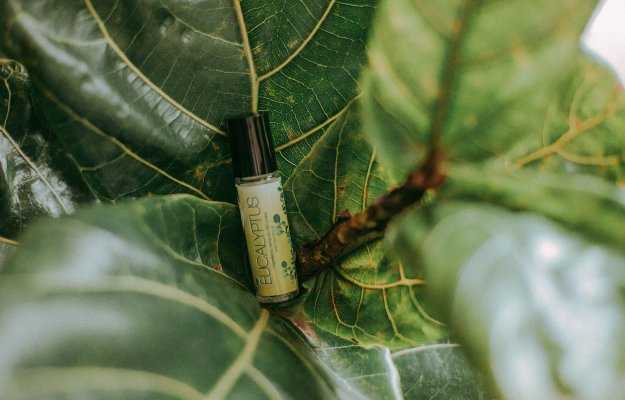Eucalyptus is an evergreen and fast-growing tree which is native to Australia. Today, Eucalyptus trees are grown all over the world and are widely used for their medicinal properties. Ayurvedic, Chinese Greek, and some Traditional European medicine systems have incorporated eucalyptus in the treatments for wide a range of conditions. It is used as an ingredient in various medicinal formulations due to its abilities for reducing symptoms of congestion, cold and cough. The leaves of Eucalyptus trees contain flavonoids, which are plant-based antioxidants and tannins, which are known to reduce inflammation. Eucalyptus is an excellent pain reliever. It is widely used in various ointments and creams for relieving muscle and joints pain.
Eucalyptus oil is obtained from the leaves of the eucalyptus tree. To release the essential oils from the eucalyptus leaves, they are first dried, crushed and distilled. Essential oils are very potent and direct application may harm the skin so it's best to dilute it before use.
Apart from being useful in medicine, the oil derived from the eucalyptus tree is used for various purposes such as in perfume, an ingredient in cosmetics, in dental preparations, industrial solvents, as a flavouring and as an antiseptic.
More than 400 different species of eucalyptus are known to exist. The main source of Eucalyptus oil which is used globally is Eucalyptus globulus which is commonly known as Blue Gum.
Some basic facts about Eucalyptus:
- Scientific Name: Eucalyptus globulus
- Family Name: Myrtaceae.
- Common Name(s): Tasmanian Bluegum, Eucalyptus oil is referred to as Nilgiri tel in Hindi
- Native Region and geographical distribution: The tree of Eucalyptus oil is native to Australia, but is now cultivated all over the world. The countries which grow Eucalyptus trees include Asia, Australia, Europe and the United States for its uses like fuelwood, timber, lumber, poles, biomass etc. The essential oils are a great source of nectar for honey bees.
























